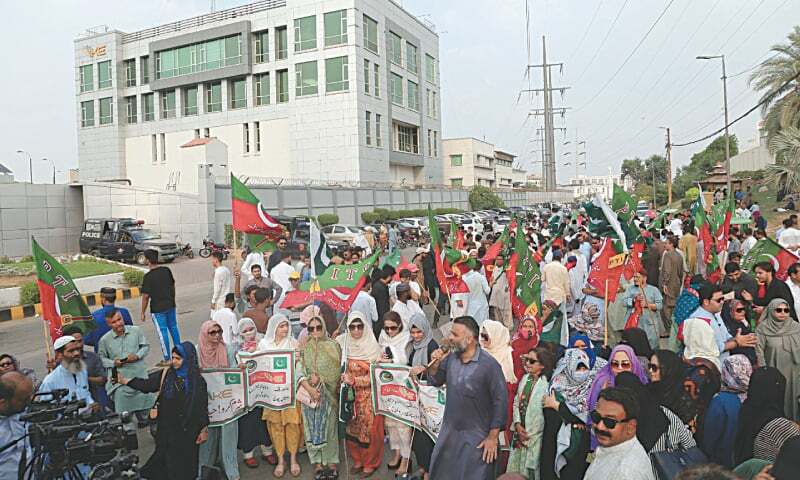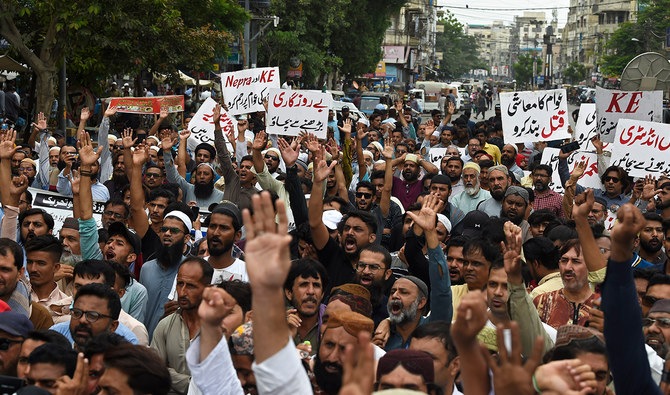Pakistan continues to grapple with a severe power crisis, leaving its citizens in disarray. From Karachi to Battagram, the power outages lasting over 12 hours daily have sparked widespread protests and growing frustration.
In regions such as Karachi, these outages have been coupled with water shortages, amplifying the challenges faced by residents. Meanwhile, the government’s decisions, including electricity rate hikes, have further exacerbated public discontent.
The Outage Crisis and Water Shortages in Karachi
Residents of Karachi, Pakistan’s largest city, have been particularly vocal about the prolonged power cuts. Daily outages lasting over half the day have disrupted lives, leaving citizens in darkness and dry taps.
Neighborhoods like Isa Nagri have witnessed intense protests, including road blockages on major routes such as the Lyari Expressway, causing severe traffic disruptions.
The lack of electricity has directly impacted water supply systems, further aggravating the plight of the city’s residents. Protesters have repeatedly highlighted their grievances, stating that numerous complaints to the Karachi Water and Sewerage Corporation (KWSB) have gone unanswered.
Read : China May Invest $1 Billion to Set Up Pakistan’s First Medical City in Karachi
One protestor explained the dire situation: “These power cuts have severely impacted our water supply. We are forced to deal with these issues daily, and our complaints are falling on deaf ears.”
Read : 2024’s Top 10 Most Crowded Cities: A Population Density Overview
Despite efforts by authorities to disperse protests peacefully with assurances of addressing concerns, Karachi continues to face an unyielding cycle of outages and water shortages. This persistent crisis has made daily life increasingly challenging for its citizens.
Nationwide Strikes and Protests
The dissatisfaction over prolonged power outages is not confined to Karachi. In Battagram, the Trade Union has called for a complete shutter-down strike, marking a significant escalation in public protests. The union declared it would withhold electricity bill payments until a stable power supply schedule is implemented.

Union representatives have voiced their frustrations over the negative impact of outages on livelihoods. “The power outages are affecting our livelihoods, and we are no longer willing to pay for services that we are not receiving. We will continue to protest until there is a resolution,” said a union leader.
The protests reflect a growing sense of helplessness among citizens, who feel burdened by unreliable services coupled with economic hardships. The strike in Battagram is a stark indicator of the public’s dwindling patience and readiness to escalate their resistance if demands are not met.
Economic Policies and Rising Costs
Amid the ongoing power crisis, the government’s economic policies have added fuel to the fire. The National Electric Power Regulatory Authority (NEPRA) recently approved a hike in electricity rates for Karachi.
The increase of Rs 0.40 per unit under the fuel cost adjustment (FCA) for August 2024 will be reflected in consumer bills starting January 2025.
This rate hike comes despite K-Electric’s request for a minor reduction of Rs 0.16 per unit for September due to fuel cost adjustments, which NEPRA rejected. Residents, already grappling with outages and water shortages, view this as yet another burden, further eroding trust in the government’s ability to address the crisis effectively.
Adding to the controversy, the Karachi Metropolitan Corporation (KMC) has introduced municipal utility charges in K-Electric bills, aiming to collect Rs 3 billion annually for city development and municipal employee pensions.

While Mayor Murtaza Wahab has promised transparency by making receipts and expenditures available online, this additional levy has not been well-received by citizens facing mounting financial pressures. The power crisis in Pakistan has laid bare the nation’s systemic challenges, from unreliable infrastructure to economic policies that strain its citizens.
The protests in Karachi and Battagram underscore a growing public dissatisfaction with the government’s handling of the situation. Prolonged outages and water shortages have disrupted daily life, prompting citizens to take to the streets in frustration.
As the crisis continues, the government must address the root causes of the outages and explore sustainable solutions to restore public trust.
Transparent governance, infrastructural improvements, and responsive policies are essential to alleviate the hardships faced by millions and to prevent further unrest.

